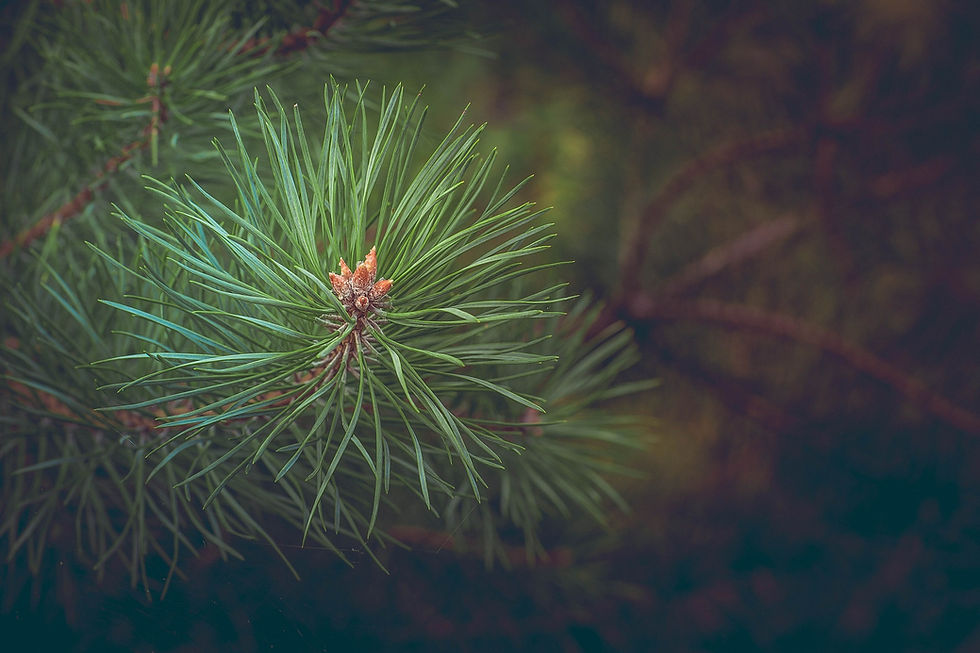The Origins and Benefits of Pine Needle Tea
- A Beautiful Life Magazine
- Feb 5
- 2 min read

Pine trees grow in almost all of the Northern Hemisphere. Worldwide there are over 126 species and pine trees have been featured in art, literature, and the Bible as a highly regarded metaphor and symbol of longevity. For centuries, pine trees have been harvested for their seeds (pine nuts), their bark, and interestingly, their needles as a source of sustenance and medicine. Specifically, pine needle tea has been used by many cultures throughout history, including in traditional Korean medicine and North American Indigenous peoples to heal various ailments, including kindly teaching settlers how to use the tea to treat scurvy.
Pine needles are rich in vitamins A and C, as well as shikimic acid, which work together to help stave off viral infections. Pine needles are also known to lessen the severity of coughs and chest congestion and help lessen fatigue and soreness. They are also known to be anti-fungal, and antioxidant, and help clean out the lymphatic system. The benefits of pine needle tea can come from simply boiling fresh needles in hot water, and it has been said that they can also be brewed easily in an espresso machine for maximum benefits.
Most pine needles have a citrusy note in them, but each kind of needle has a unique taste. You can order pine needles through an online health store or at a physical health shop. Do not pick or eat/drink needles from Norfolk, Cypress, Fern Pine, or Yew trees, as they may be toxic.
Needles that are known to have the highest concentration of vitamins can be found on Masson's pine - otherwise known as Chinese red pine. This tree is native to Asia; look for needles at an herbalist or traditional natural medicine shop.
*Always consult a doctor before buying, making, or drinking pine needle tea. Do not drink if pregnant or suspected to be pregnant. NEVER eat/drink Norfolk, Cypress, Fern Pine, or Yew pine needles. This article is for entertainment and informational purposes only.
Tips for Making a Delicious and Healthy Cup of Pine Needle Tea
Ingredients:
2.5 Tbsp chopped pine needles (fresh or dried) (*Please see note about which pine needles not to eat)
1 Cup Water
Honey (to taste)
Instructions:
Boil water. In the meantime, remove needles if still attached to branches. Wash needles thoroughly. Roughly chop pine needles to release their oils. Place needles in boiled water and steep for 15 minutes. Strain, add honey if you wish, and enjoy!













Comentarios